Platonic solids


Thought by Plato to be the elemental building blocks of our universe, the Platonic solids are a series of five three-dimensional polyhedra defined by unalterable mathematic relationships.
Plasterboard maquettes for the five Platonic solids
Created in the first coronavirus lockdown of 2020, these sculptures illustrate the stability that mathematics represents in the face of precarious and mercurial notions of time, life, and work. Despite shifting realities, the Platonic solids remain constant, unchangeable, and irrefutable.
Platonic solids photo series
Expressing
both solidity and fragility, each sculpture was created from commercial
plasterboard – a more literal building block in the contemporary world –
and in 2021, photographed against the chalkboards used to calculate
their construction. The sculptures and photo series alike draw the
absolute into the indefinite, depicting forms of theoretical perfection
hewn in imperfect reality.
The Platonic solids photo series is a limited edition print available to buy from Jack Eden Art. Each digital photograph is inkjet printed onto 50 x 50 cm archival paper, and signed in a limited edition of 50.
Prints are available to purchase, please email for details
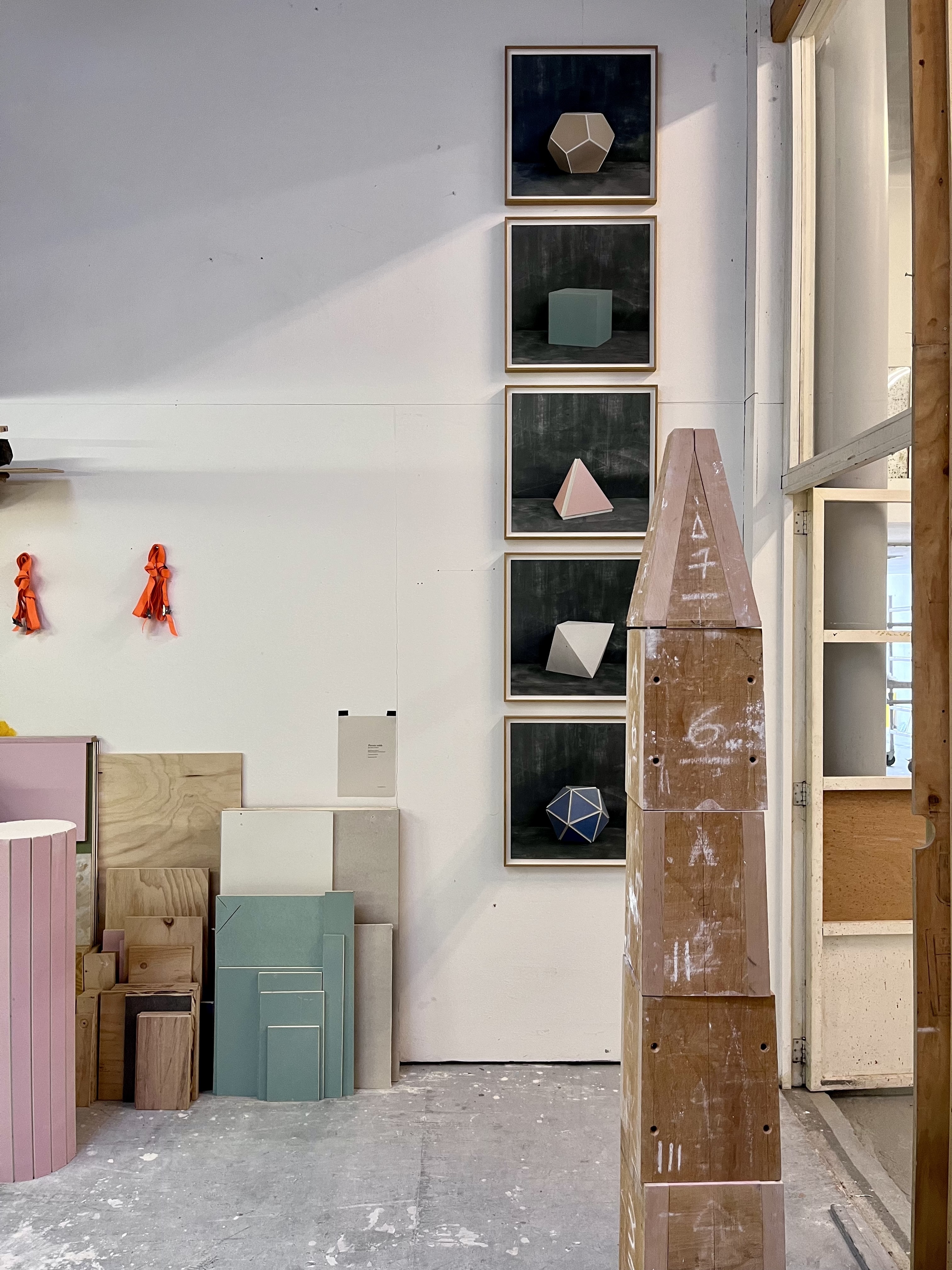
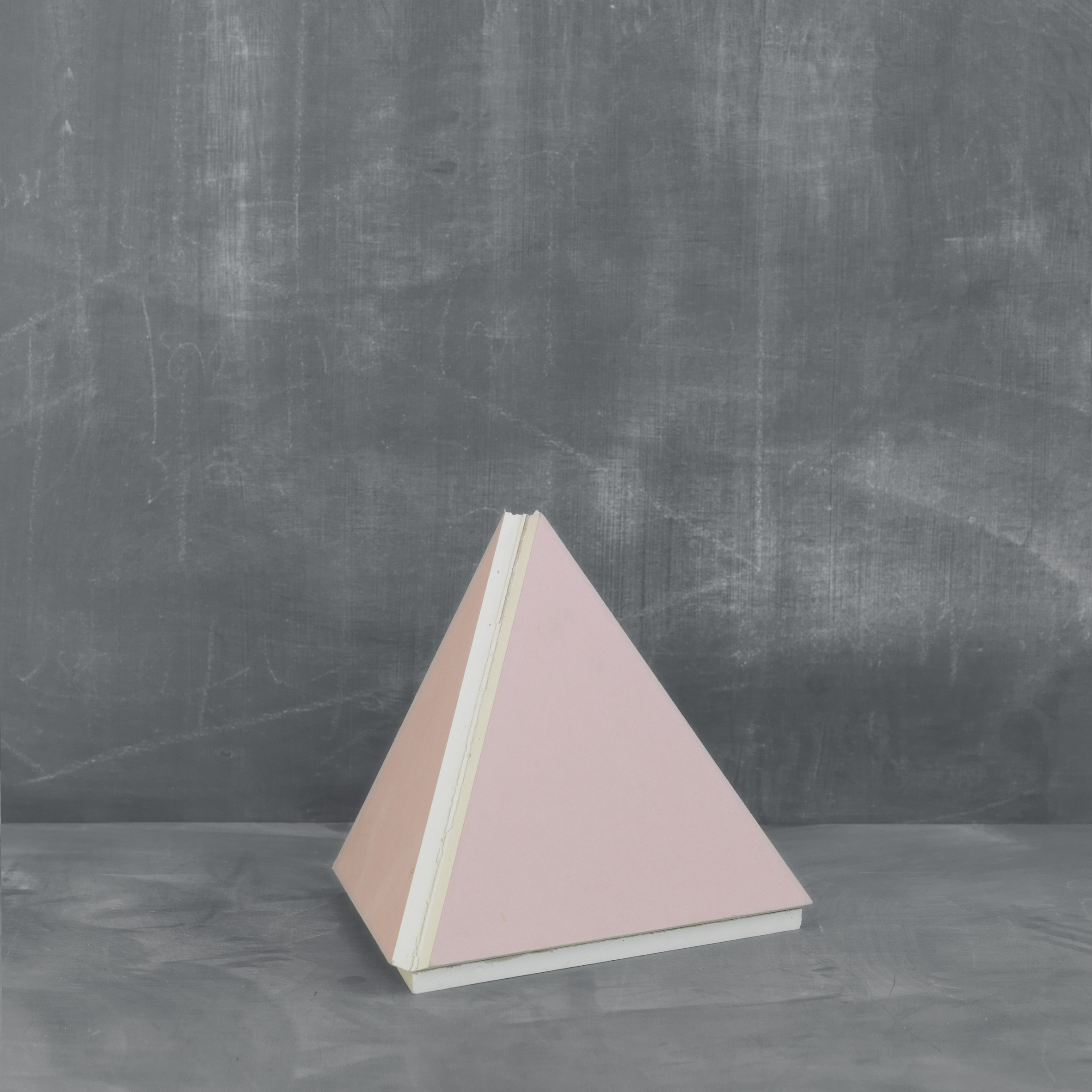
The four-sided tetrahedron (or pyramid) represents elemental fire, created from one flat net of folded pink flame-retardant plasterboard.
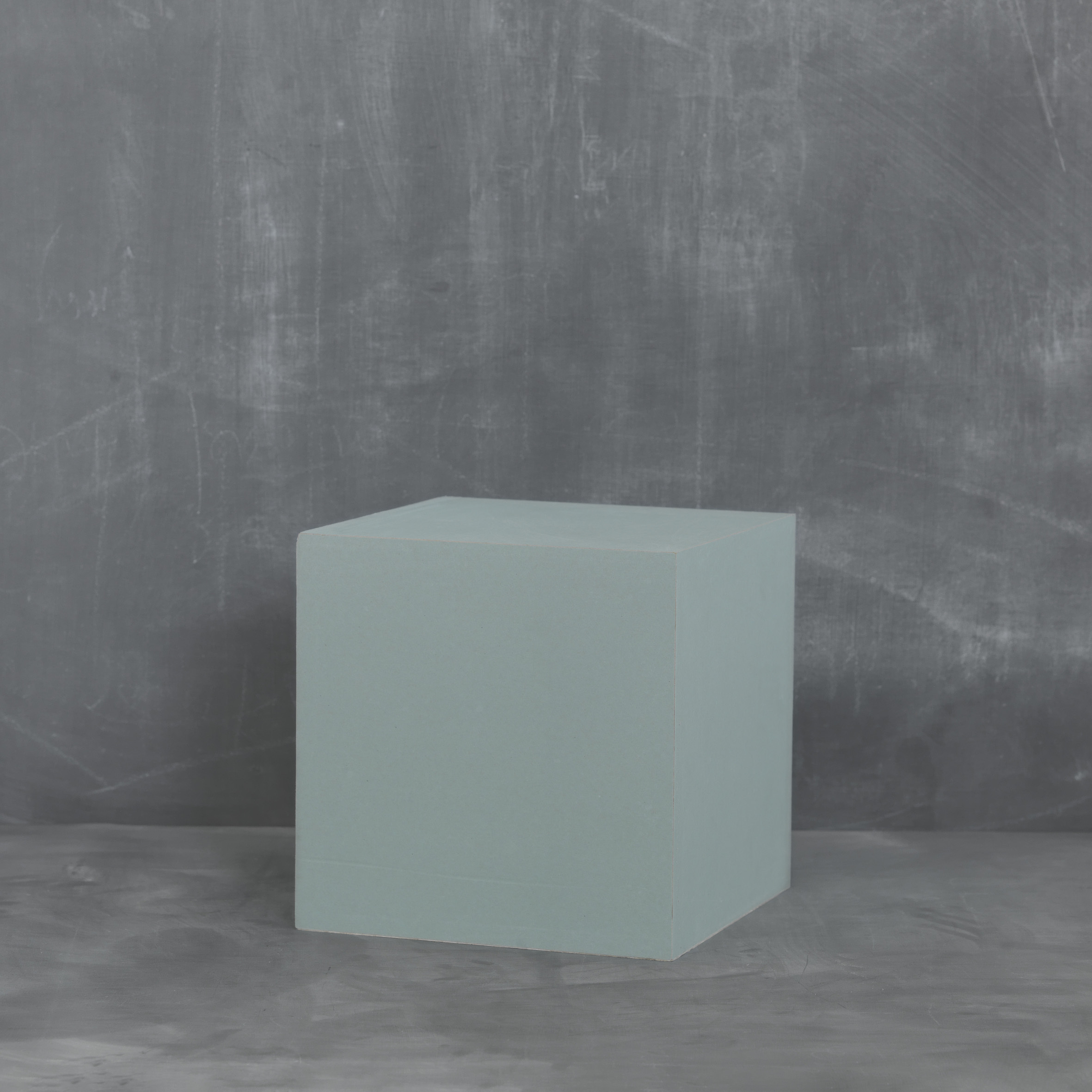
The six-sided hexahedron (commonly known as a cube) represents earth, the constituent element of our terrestrial world, smoothly mitred as an edgeless solid in green water-repellent plasterboard.
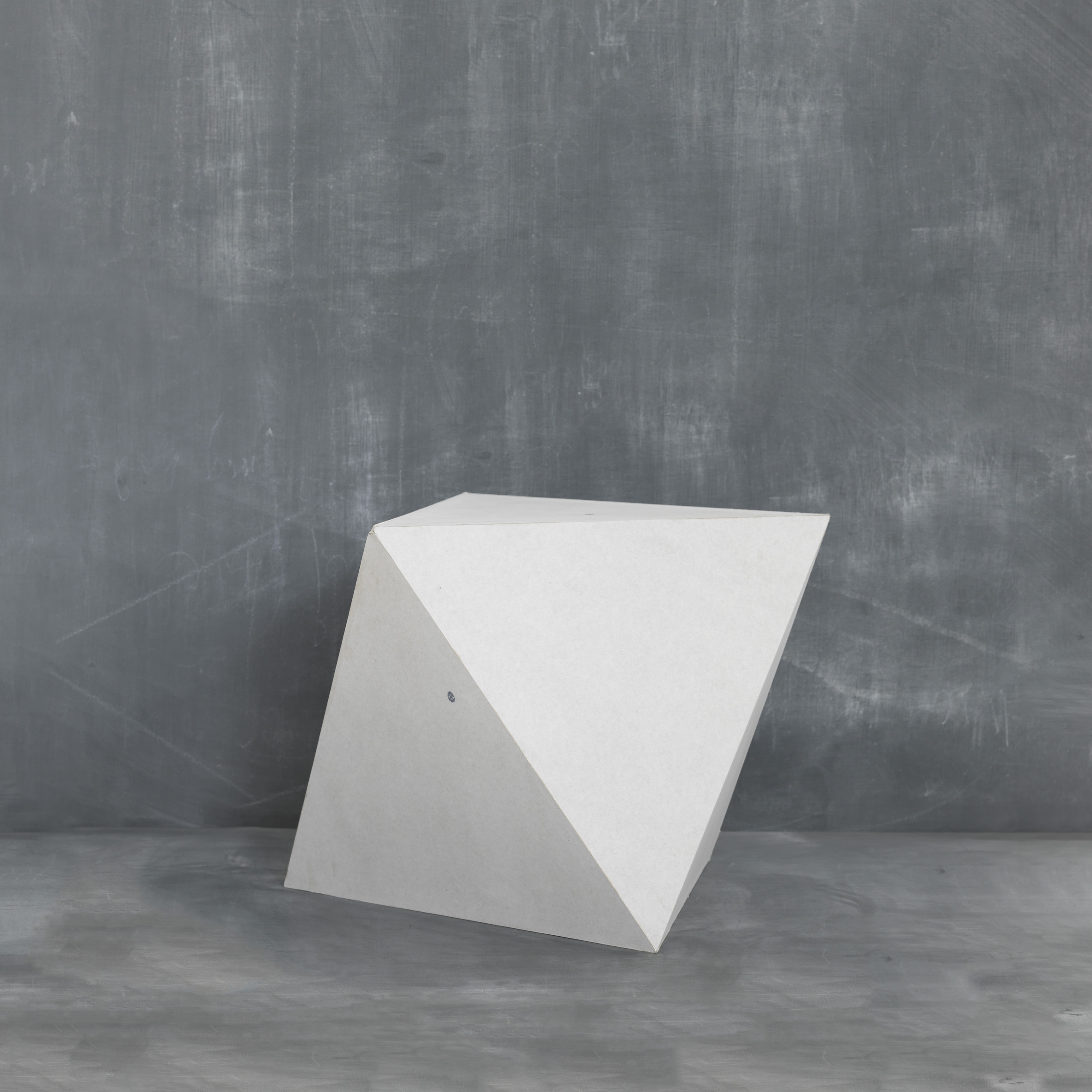
The eight-sided octahedron represents air, similarly constructed with precisely mitred seams to appear almost edgeless in standard white plasterboard.
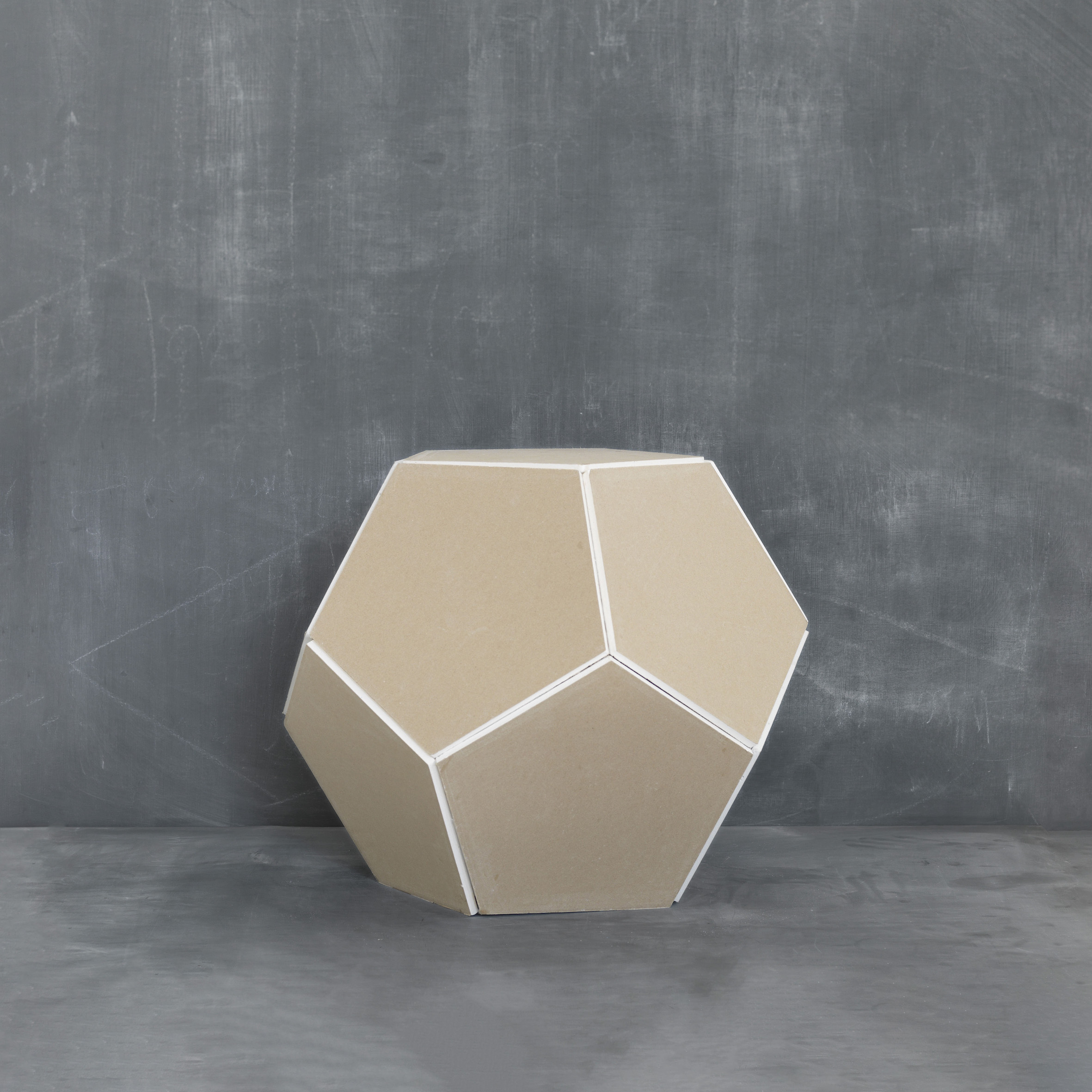
The twelve-sided dodecahedron represents ether – the matter that constitutes our universe, according to Aristotle – created from plates of the most common brown plasterboard meeting at precise angles to create one voluminous container.
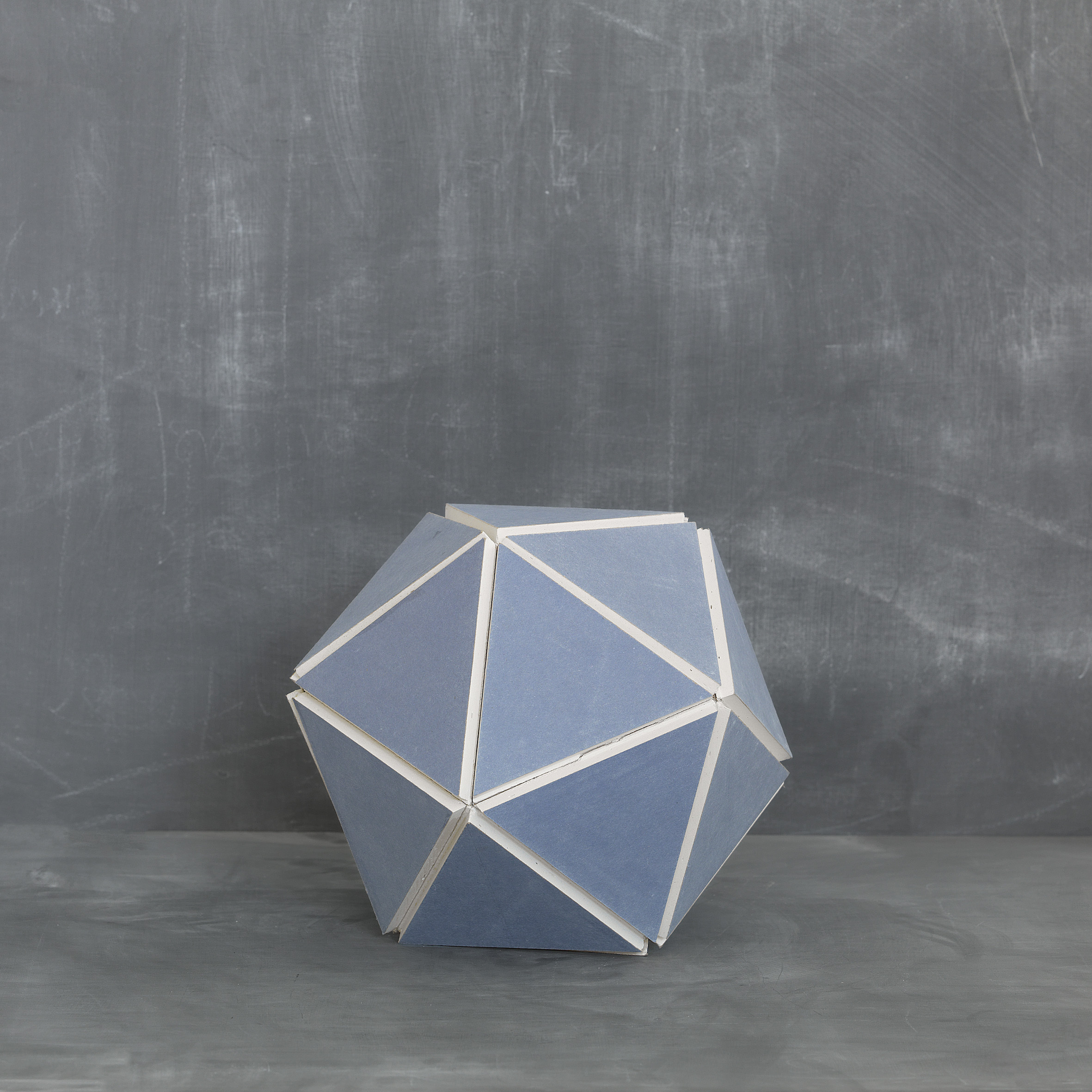
The twenty-sided icosahedron is near spherical – Plato considered flowing liquid comparable to many millions of tiny balls – and defines water, sculpted from one long net of dense lavender-coloured plasterboard.